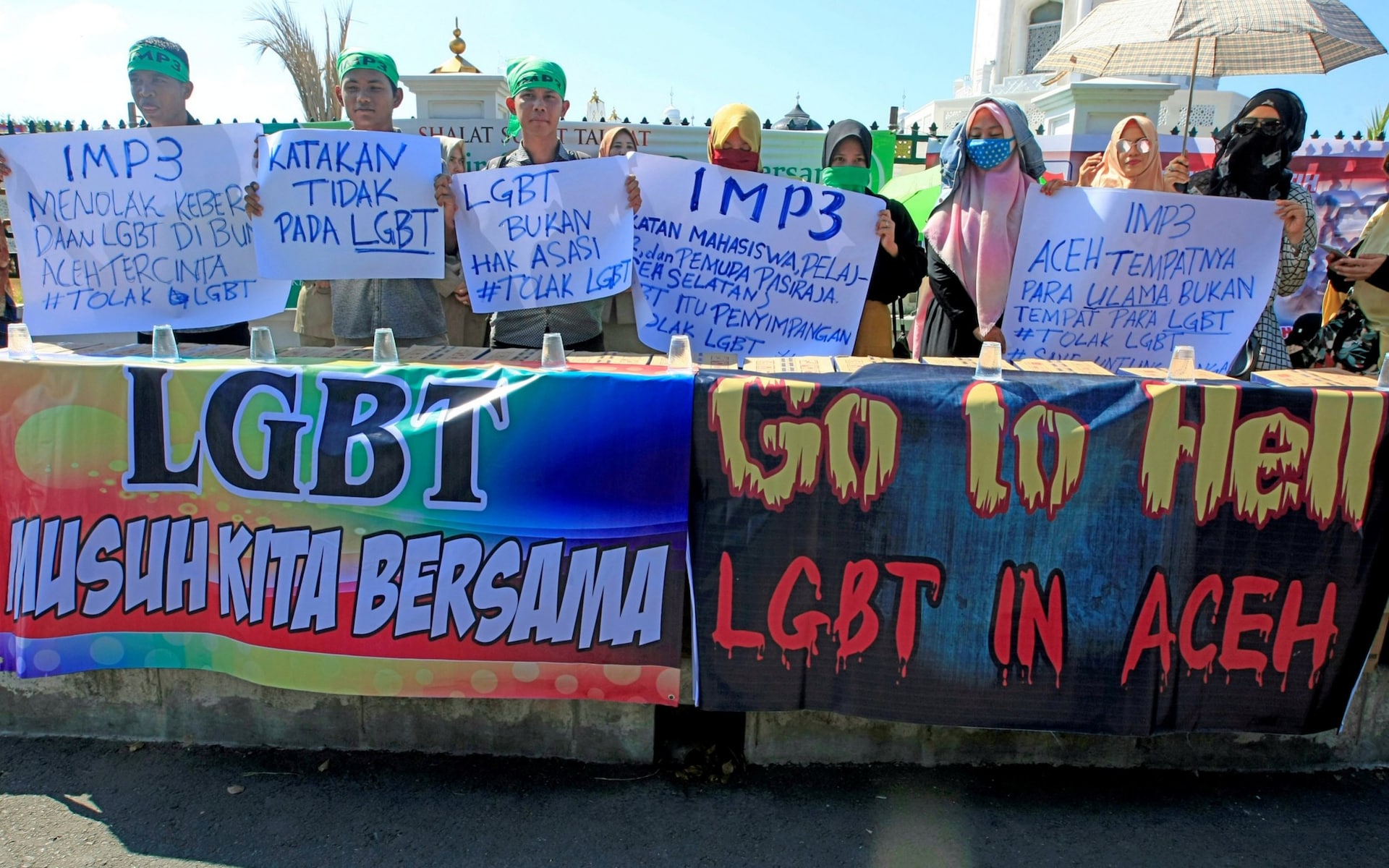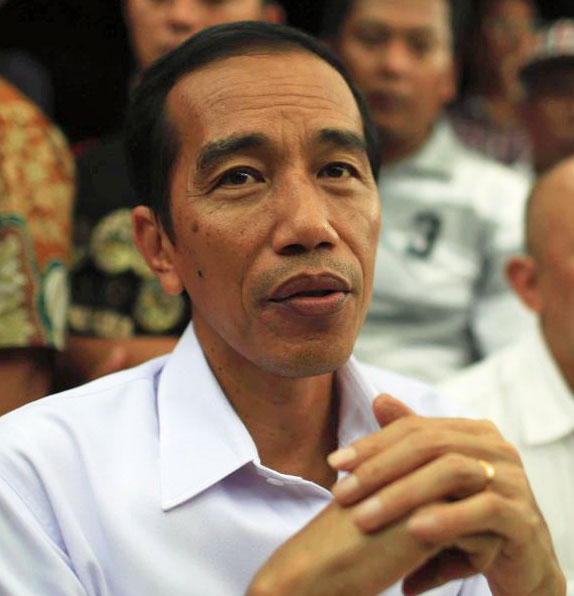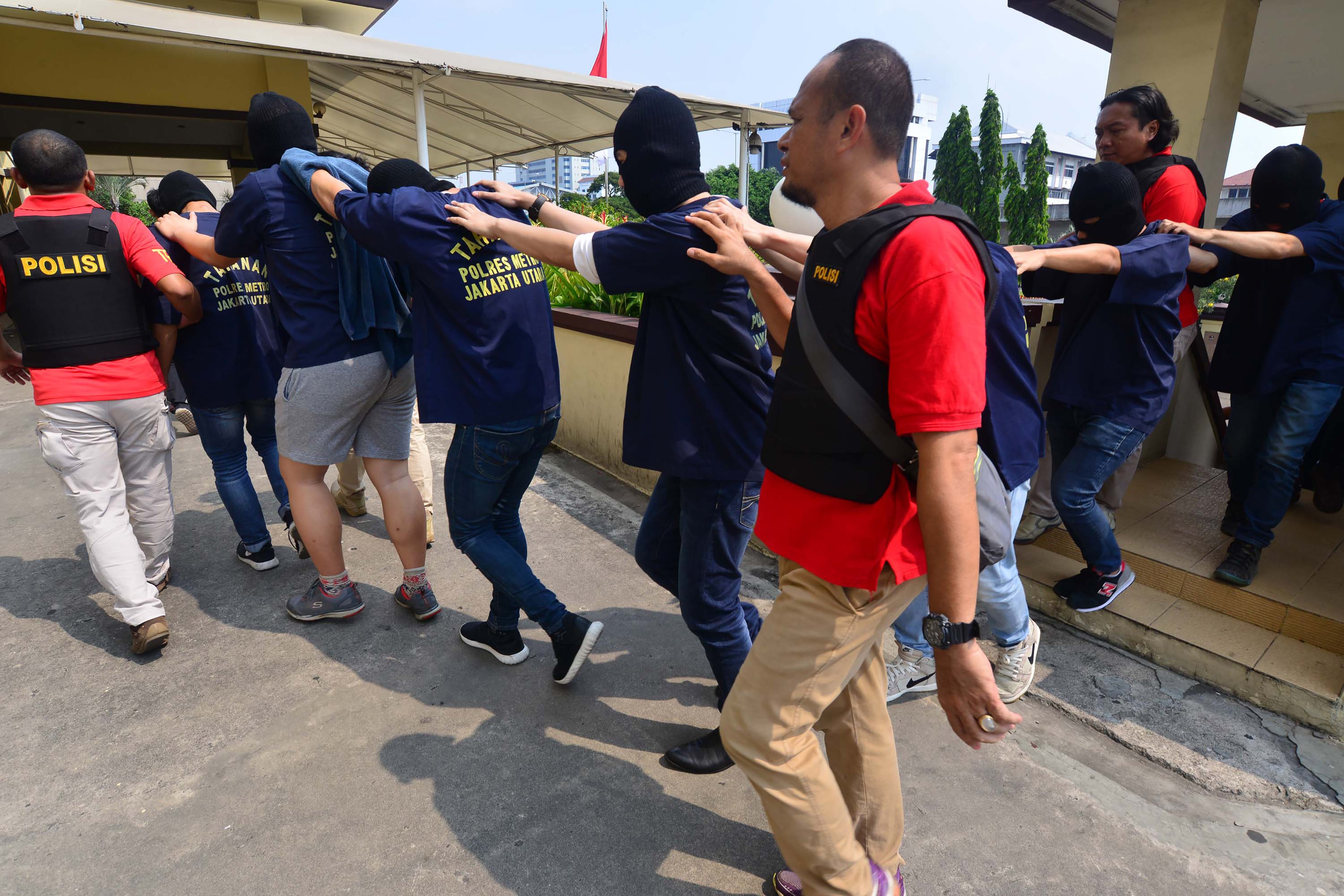Pessimism: LGBT communities fear criminalization in Indonesia
Colin Stewart is a 45-year journalism veteran living in Southern…
Indonesians’ increasingly anti-LGBT attitudes have many activists worried that the country will soon pass a law criminalizing both same-sex intimacy and all other types of sex outside of a traditional heterosexual marriage.

Events pointing in that direction include:
- Indonesian Capital Rounds Up Trans People for ‘Rehabilitation’ (March 13, 2018, Care2)
- LGBT ‘taskforce’ in Indonesian city adds to fears of gay rights crackdown (Feb. 20, 2018, The Telegraph)
- Indonesia shuts down dozens of LGBT sites (Feb. 9, 2018, UCA News)
- LGBT defenders face escalated attacks in Indonesia – report (Jan. 30, 2018, Rappler on Front Line Defenders report)
OutRight International’s Asian program coordinator, Grace Poore, reports pessimistically:
LGBT communities brace for criminalization
By Grace Poore
The Indonesian parliament is expected to vote in favor of proposed Criminal Code amendments that will criminalize consensual same-sex behavior and sex outside of marriage (extramarital and premarital). This vote will disproportionately impact lesbian, gay, bisexual, and transgender (LGBT) people along with thousands of heterosexual adults in intimate non-marital relationships.

For the LGBT community, this is blatant betrayal; betrayal by fellow Indonesians, betrayal by moderates in parliament, and betrayal by President Joko Widodo, who campaigned on a platform for human rights in 2014 – the first president in nearly 70 years who is not from the political elite or the military, often celebrated as the “people’s president.”
From the outside, what I see in Indonesia is an unfettered rise of Islamist power, shredding the reputation that Indonesia has long held: a country with the largest Muslim population in the world that practices a tolerant, moderate Islam. For the last 26 months, there has been an erosion of pluralist, moderate Islam fueled by Islamist hardliners.
Moving away from moderate Islam
The majority religion of Indonesia has been moderate Islam. In 2017, Widodo declared that Indonesia is still a nation of moderate Islam despite indications that the country is moving backwards on social tolerance and acceptance. The attacks on LGBT people are part of a growing trend, one which sees a particularly narrow interpretation of Islam encroaching on more tolerant ways of being Muslim in Indonesia. The result – Indonesia is devolving from a moderate Muslim nation into this current horrifying state of intolerance.

By no stretch has all of Indonesia been openly accepting of LGBT people prior to the ongoing anti-LGBT campaign, but the level of coordinated fearmongering, hostility, and terror tactics being used against LGBT communities since 2016 is unprecedented
By no stretch has all of Indonesia been openly accepting of LGBT people prior to the ongoing anti-LGBT campaign, but the level of coordinated fearmongering, hostility, and terror tactics being used against LGBT communities since 2016 is unprecedented. Now, assaults against LGBT people have escalated and become more frequent and more brazen.
In late 2017 and early 2018, women suspected of lesbian activity were reported to police, their homes were raided, and, at times, their identities exposed by the media. Waria, the indigenous transgender women of Indonesia, were dragged from their workplaces and publicly humiliated. Private establishments for gay men were raided and patrons arrested. Local government and police have even formed task forces with the intent of forced rehabilitation, corralling anyone who is or is perceived to be LGBT, or chasing them away from certain cities and towns. Last September, village leaders raided a private residence and evicted 12 lesbians who were sharing a house.
In general, Indonesia has a poor record of advancing women’s safety and security. In 2017, violence against women increased 25%, according to the Indonesian Commission on Violence Against Women. Rape is severely under-reported in the country, according to one report, as much as 90% of cases go unreported, and two-thirds of rape victim-survivors are under the age of 18.
Ramifications of changing the Criminal Code
If parliament votes in favor of the proposed Criminal Code amendments, adultery and premarital sex will both be criminal offenses, with a proposed penalty of five years imprisonment for adultery and one-year imprisonment for premarital sex. Today, the existing Criminal Code imposes a nine-month jail term for adultery; consensual premarital sex is not criminalized. Under the current Criminal Code, adultery is charged only after an aggrieved spouse reports it. The proposed articles, however, expand adultery complainants beyond an aggrieved spouse to close relatives; they expand pre-marital sex complainants to anyone, opening the door for privacy violations, false accusations, and public humiliation of suspected offenders by vigilante mobs or neighbors – all done in the name of protecting public morality.

Another major change proposed by these new Criminal Code amendments is the criminalization of same-sex relations. The current Criminal Code is modeled after a single kind of sexuality and partnership between married partners of different sexes. Article 469 calls for criminal penalties against adults having same-sex relations, regardless of consent, which will increase home raids, surveillance, and vigilante violence against LGBT people, as well as imprisonment.
The amendments to the Criminal Code will also have cascading repercussions on different marginalized communities. The proposed adultery provisions will harm indigenous couples in customary non-legally binding marriages. At the same time, cases of rape, including acquaintance and marital rape, will be swept further under the rug, as many rape victims in Indonesia fear blame, shame and retaliation, and even criminal punishment, while also having no one to corroborate what happened.
Moving forward
President Widodo plans to run again for a second term in 2019. I repeatedly hear that he and moderate politicians are too afraid of losing votes to defy Islamist political parties that are pushing for national-level criminalization of LGBT people. Caving to Islamists is to abandon not only LGBT communities but also other groups in Indonesia, from non-Muslims to indigenous communities to families with pre-existing diverse family formations to women in general whose traditions are no longer deemed acceptable by religious hardliners.
Indonesian LGBT people are not limited to a singular “identity.” They are also, for instance, members of minority religions, members of the aging population of Indonesians, people who are healthcare providers and breadwinners for their families. They are also voters, police officers, business and community leaders, and sons and daughters of politicians. Compartmentalizing people disregards the intersectionality of discrimination and violence.
In order for Indonesia to move forward, there must be convergence toward inclusive pluralism and moderate Islam.
The author of this article, Grace Poore from Malaysia, is the regional program coordinator for Asia and the Pacific Islands at OutRight Action International, the international organization working to advance the human rights of LGBTIQ people globally. She oversees multi-country documentation and advocacy projects in Asia, conducts training on human rights documentation, and facilitates lesbian, bisexual and transgender engagement with UN mechanisms, specifically the Convention on the Elimination of All Forms of Discrimination Against Women (CEDAW).
Related articles:
- Indonesia [would] criminalise homosexual and extramarital sex under proposed law changes (March 2018, South China Morning Post)
- U.N. official to Indonesia: Don’t outlaw gay sex (February 2018, 76crimes.com)
- ‘Now Indonesia Wants to Hide Its Floggings’ (July 2017, 76crimes.com)
- Indonesian Muslim leader urges boycott of pro-LGBT Starbucks (July 2017, 76crimes.com)
- International coalition targets Indonesia’s anti-LGBT abuses (June 2017, 76crimes.com)
- Commentary: Indonesian police fuel anti-LGBT hysteria (June 2017, 76crimes.com)
- LGBT repression grows in Indonesia, with 141 arrests, public caning (May 2017, 76crimes.com)
- Caning law pushes Aceh’s LGBT further underground (December 2015, Aljazeera)
- Indonesia Police Arrest 141 Men Accused of Having Gay Sex Party (May 22, 2017, New York Times)
- Indonesia keeps persecuting its LGBT citizens (April 2017, 76crimes.com)
- Study: Anti-LGBT bias costs Indonesia up to $12 billion (March 2017, 76crimes.com)
- Indonesian police push anti-LGBT militant Islamic agenda (January 2017, 76crimes.com)
- Indonesia Muslim hardliners break up what they think is gay sex party (November 2016, Reuters)
- Outcry after Indonesian police allow anti-gay raid (November 2016, 76crimes.com)
- Indonesian president: Police must defend LGBT citizens (October 2016, 76crimes.com)
- Indonesians push to prohibit gay sex, unmarried sex (August 2016, 76crimes.com)
- Activists to Indonesian leaders: Stifle anti-LGBT officials (February 2016, 76crimes.com)
- Indonesia: Detention, ‘rehab’ for 2 women who hugged (October 2015, 76crimes.com)
- Archive of this blog’s coverage of Indonesia





When clciking on the Facebook-button the content is not appearing in my facebook page!